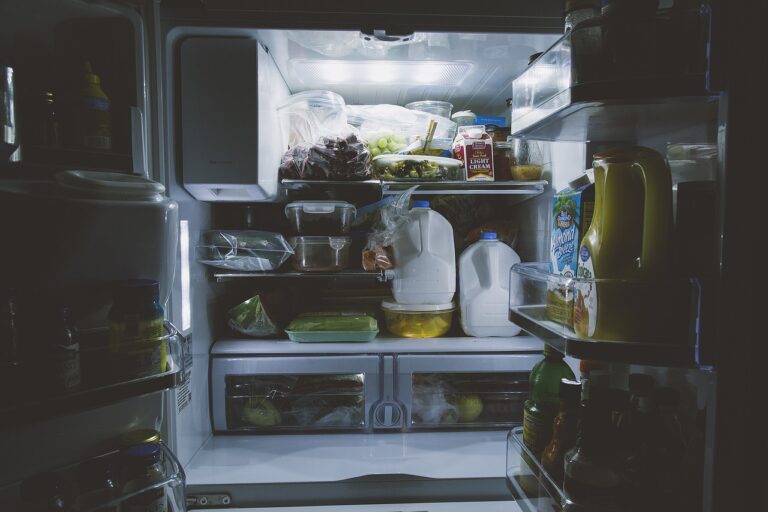Kombucha and Environmental Advocacy: Promoting Policies That Support Eco-Friendly Practices
11xplay .com, diamondexch999 sign up, skyexchange: Kombucha and Environmental Advocacy: Promoting Policies That Support Eco-Friendly Practices
If you’re someone who is passionate about sustainability and protecting the environment, you may already be familiar with the benefits of kombucha. This fermented tea has been gaining popularity in recent years for its numerous health benefits, but what many people don’t realize is that kombucha can also play a role in promoting policies that support eco-friendly practices.
In this blog post, we will explore how kombucha can be a tool for environmental advocacy and how you can use your love for this drink to make a positive impact on the planet.
What is Kombucha?
Kombucha is a fermented tea that is made by combining tea, sugar, and a culture of bacteria and yeast known as a SCOBY (symbiotic culture of bacteria and yeast). The SCOBY ferments the tea over a period of one to two weeks, creating a fizzy, tangy drink that is rich in probiotics and antioxidants.
Kombucha has been consumed for centuries in various cultures around the world, and it has gained popularity in recent years as a health tonic with numerous potential benefits, including improved digestion, increased energy levels, and strengthened immune system.
How Can Kombucha Promote Environmental Advocacy?
Kombucha is not only beneficial for your health but can also be a powerful tool for advocating for environmental policies that support sustainable practices. Here are a few ways in which kombucha can contribute to this cause:
1. Support for Local Farmers: Many kombucha brands source their tea and other ingredients from local farmers, supporting small-scale agriculture and reducing the carbon footprint associated with transportation.
2. Reduced Plastic Waste: Kombucha is typically sold in glass bottles, which are more easily recycled than plastic bottles. By choosing kombucha over other beverages that come in single-use plastic containers, you can help reduce plastic waste and promote a more sustainable lifestyle.
3. Emphasis on Organic Ingredients: Kombucha is made with organic tea and sugar, which are grown without the use of synthetic pesticides or fertilizers. By choosing organic kombucha, you are supporting farming practices that are better for the environment and promote soil health.
4. Water Conservation: The production of kombucha requires water, but compared to other beverages like soda or juice, kombucha has a lower water footprint. Additionally, some kombucha brands are taking steps to conserve water in their production process, further reducing their environmental impact.
5. Education and Awareness: By promoting kombucha as a healthy and environmentally friendly beverage, you can raise awareness about sustainable practices and inspire others to make choices that are better for the planet.
How Can You Get Involved?
If you’re passionate about the environment and want to use kombucha as a tool for advocacy, there are several ways you can get involved:
1. Choose Sustainable Brands: Look for kombucha brands that prioritize eco-friendly practices, such as using organic ingredients, supporting local farmers, and using environmentally friendly packaging.
2. Spread the Word: Share information about the environmental benefits of kombucha with your friends, family, and social media followers. Encourage others to make sustainable choices when it comes to their food and beverage consumption.
3. Support Legislation: Get involved in local and national advocacy efforts to support policies that promote sustainability, such as renewable energy initiatives, bans on single-use plastics, and incentives for organic agriculture.
4. Reduce Your Carbon Footprint: In addition to drinking kombucha, look for other ways to reduce your environmental impact, such as driving less, composting food waste, and using reusable bags and containers.
By incorporating kombucha into your daily routine and using it as a platform for environmental advocacy, you can make a positive impact on the planet and help promote policies that support eco-friendly practices.
FAQs
Q: Is kombucha really better for the environment than other beverages?
A: While kombucha is not a perfect solution, it does have some environmental benefits compared to other beverages. By choosing brands that prioritize sustainability and using environmentally friendly packaging, you can reduce your carbon footprint and support eco-friendly practices.
Q: Can I make my own kombucha at home?
A: Yes, making kombucha at home is relatively simple and can be a fun way to explore fermentation and probiotics. Just be sure to follow a trusted recipe and practice good hygiene to avoid contamination.
Q: What should I look for when choosing a sustainable kombucha brand?
A: When selecting a kombucha brand, look for organic ingredients, support for local farmers, and environmentally friendly packaging. You can also research the company’s sustainability practices and certifications to ensure they align with your values.







